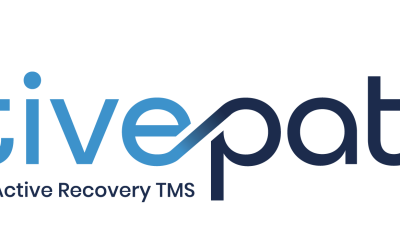Depression can make you feel like the sadness and hopelessness will never end. It can be difficult to believe that there’s a light at the end of the tunnel. But it’s important to explore the treatments that will help loosen your depression’s tight grip on your overall health and well-being.
Medication is one of the pillars of mental health treatment, and for good reason. With copious amounts of data and testing, chemists have developed a variety of medications for depression over the years to help reduce your depression symptoms on a daily basis. But if you’re not sure which ones to explore, we’re here to help.
Read on to learn about the benefits of treating depression and the different options that you can discuss with your mental health provider. We’ll also talk about why TMS is an effective alternative to medication.
Why you should treat your depression symptoms
Major depressive disorder, simply referred to as depression, is a common mood disorder that affects more than 17 million U.S. adults. Even though many people experience the pervasive negative emotions that come with the disorder, it’s not always properly treated. In fact, only 1 out of every 3 people with depression receive proper treatment.
Depression can cause symptoms like overwhelming feelings of sadness, loss of enjoyment in activities and social withdrawal. These emotions and behaviors can affect your ability to complete your daily activities as well as form healthy interpersonal relationships. That’s why it’s important to explore the treatment options that help reduce and manage the symptoms on a day-to-day basis.
The benefits of treating your depression include:
- Improved relationships with loved ones.
- Increased motivation and hope for the future.
- Decreased risk and severity of depressive episodes.
3 medications for depression
When you’re diagnosed with depression by a mental health provider, they’ll likely recommend medication as one of the first courses of action. There are different types of depression medications to choose from, but you can collaborate with your provider to determine which will be the best for you based on your specific symptoms and medical history.
Here are three common medications used to treat depression:
- SSRIs — Selective serotonin reuptake inhibitors are the most common types of antidepressants; they boost the serotonin levels in your brain. Serotonin is a neurotransmitter and hormone that has a positive impact on your mood. Well-known SSRIs that have been approved by the FDA include citalopram, escitalopram and fluoxetine.
- SNRIs — Another common type of antidepressant is serotonin and norepinephrine reuptake inhibitors. Along with serotonin, this antidepressant increases your norepinephrine, which helps to regulate your mood and increase your focus. It also contributes to your “fight-or-flight” response to an emergency. Common FDA-approved SNRIs include desvenlafaxine, duloxetine and venlafaxine.
- Esketamine — Usually going by its brand name of Spravato, esketamine is an offshoot of ketamine. It’s administered through a nasal spray that’s taken alongside an oral antidepressant. It can help balance your brain chemicals and reduce your symptoms, especially for those with treatment-resistant depression. Treatment-resistant depression means that your symptoms haven’t improved after at least two trials of antidepressants.
TMS therapy: An alternative to medication for depression
Even though medication is an effective treatment option for major depressive disorder symptoms, it’s important to explore what other options can help improve your overall quality of life. Plus, many people try to avoid medication due to the risk of side effects. That’s why you should consider TMS therapy as an alternative option for treatment-resistant depression that’s both noninvasive and non-medication.
Transcranial magnetic stimulation is a type of neurostimulation therapy that delivers magnetic pulses to areas of the brain that are involved in mood regulation. The pulses change the neural networks by stimulating cell activity in underactive areas.
One of the biggest benefits of TMS therapy is that it has fewer and less severe side effects than medication. TMS can cause temporary side effects such as twitching facial muscles, mild headaches and discomfort surrounding the treatment area. Those are a lot easier to manage and have less of an impact on your overall well-being when compared to potential antidepressant side effects, which include:
- Dry mouth.
- Blurred vision.
- Fatigue.
- Gastrointestinal distress.
- Nausea.
- Sexual dysfunction.
- Weight gain.
It’s important to note that many TMS therapy patients also take antidepressants.
Active Path Mental Health can provide medication and non-medication options for depression
Everyone is different. Depression treatment that works for one person might not work for another. That’s why at Active Path Mental Health, we cover all the bases. We offer esketamine treatment and psychotherapy as well as TMS therapy to help you progress on your mental health journey.
Contact our team today for more information or to schedule an initial appointment.





